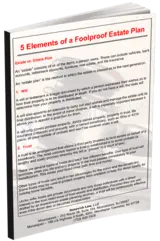Placing trust in someone else to act on your behalf in important personal or financial situations is a difficult decision. By signing a power of attorney, you can give another person the authority to act for you when you are unable to perform a task or make a decision on your own.
If you are considering granting a power of attorney, it may be beneficial to call an accomplished attorney first. A New Jersey power of attorney lawyer could present you with several options for granting decision-making power to a family member, loved one, or legal agent.
Power of Attorney in New Jersey
A power of attorney is a document that allows someone to act as an agent on behalf of the grantor, who is called the principal. The agent who is granted the authority is referred to as the attorney-in-fact.
Per the New Jersey General and Permanent Statutes §46:2B-8.9, a grant of power of attorney must be in writing and properly acknowledged, witnessed, and signed. A competent New Jersey power of attorney counsel might be able to answer further questions about other required formalities.
A principal can bestow several forms of authority on an attorney-in-fact, including the following:
- Banking
- Managing finances
- Paying creditors and taxes
- Buying and selling real estate
A grantor of power of attorney may also limit an agent’s permissions. Further, a standard power of attorney is freely revocable and may be terminated by death or incapacity.
Durable vs. Standard Power of Attorney
A durable power of attorney may continue even after the grantor no longer has the capacity to give the agent permission to act on their behalf. Durable documents often have specialized language, such as “this power shall not be affected by subsequent disability or incapacity.” A standard grant of power of attorney may not include such language.
Per New Jersey law, a durable power of attorney may be designed so that it does not go into effect until after the principal exhibits diminished capabilities. This may commonly occur with elderly principals. Moreover, it may be limited to a fixed amount of time by the terms of the document. An experienced power of attorney lawyer in New Jersey could discuss other significant features with interested individuals.
Compensation for Agents with a Power of Attorney
The formal conditions of a power of attorney may indicate that an attorney-in-fact could receive compensation for their engagements. As an alternative measure, a principal may execute a separate document that contains the provisions for the timing, amount, and methods for payment of the agent.
If a power of attorney does not stipulate that an attorney-in-fact should be remitted a payment, the court may allow it upon receipt of a petition for compensation.
Meet with a New Jersey Power of Attorney Legal Professional
If you are uncertain about letting someone else make important decisions for you, it might ease your mind to speak with an attorney. A knowledgeable New Jersey power of attorney lawyer may be able to explain the legal nuances of such a document, how it may be altered or revoked in the future, and how it may apply to your situation and will. Contact a local New Jersey legal professional today to discuss your power of attorney needs.

 (856) 439-6223
(856) 439-6223
